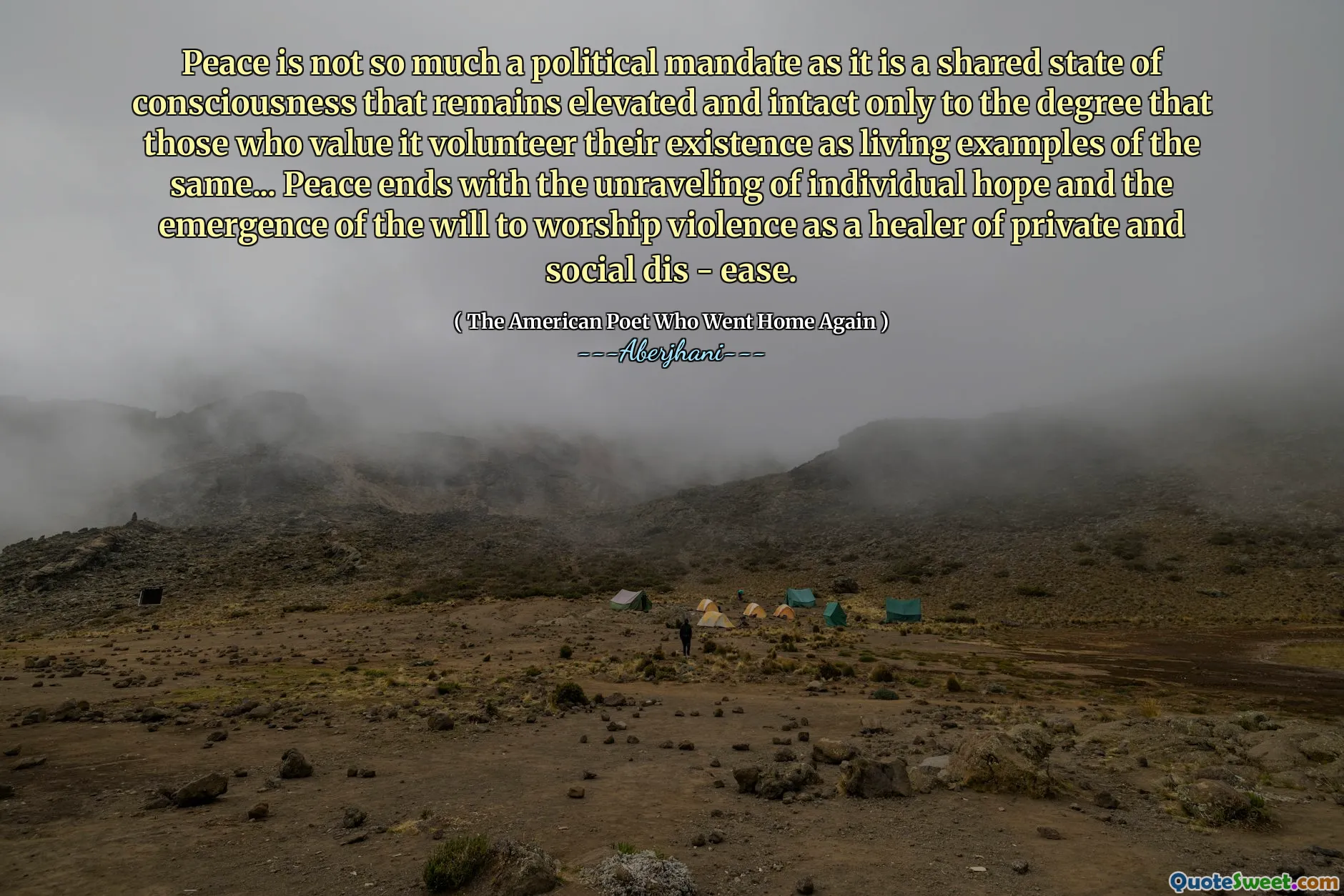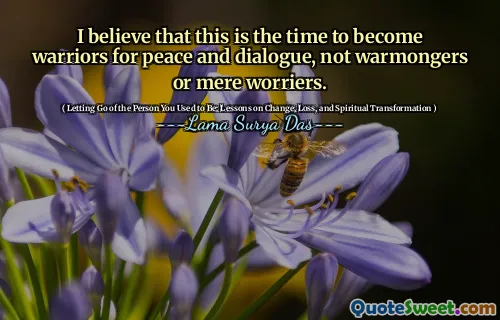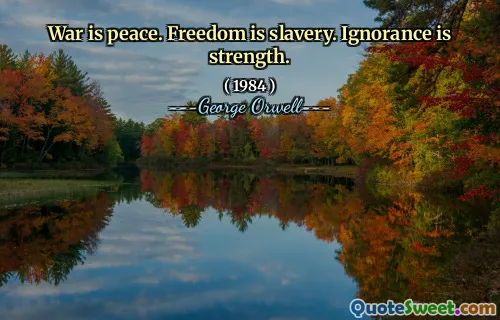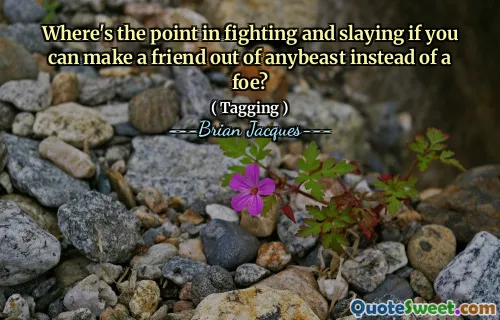
Peace is not so much a political mandate as it is a shared state of consciousness that remains elevated and intact only to the degree that those who value it volunteer their existence as living examples of the same... Peace ends with the unraveling of individual hope and the emergence of the will to worship violence as a healer of private and social dis - ease.
This quote highlights the profound idea that true peace extends beyond mere political agreements or treaties; it is fundamentally rooted in a collective consciousness and individual commitment. When individuals cultivate a shared sense of hope and understanding, they elevate societal harmony, demonstrating through their actions a conscious choice to embody peace. However, the quote also warns of the fragile nature of peace, emphasizing that it can easily unravel when personal hope diminishes, giving way to a dangerous tendency to see violence as a remedy for pain and social issues. This insight resonates deeply because it underscores how inner attitudes and collective mindset influence macro-level peace. When despair or disillusionment takes hold, people might justify violence as a means of healing or resolving conflicts, thereby perpetuating a cycle of suffering. The call to volunteer one's existence as a living example of peace is an inspiring yet challenging demand—requiring vigilance, self-awareness, and unwavering hope. It suggests that peace isn't a passive state but an active choice that must be continuously reinforced through conscious efforts. Ultimately, this quote reminds us that lasting peace depends on individual hope and the willingness to embody and promote those virtues in everyday life; neglecting this responsibility can lead to societal disintegration and the rise of violence as a misguided solution to our collective dis-ease. This insight remains vital in understanding how to foster genuine peace in personal and societal contexts.



